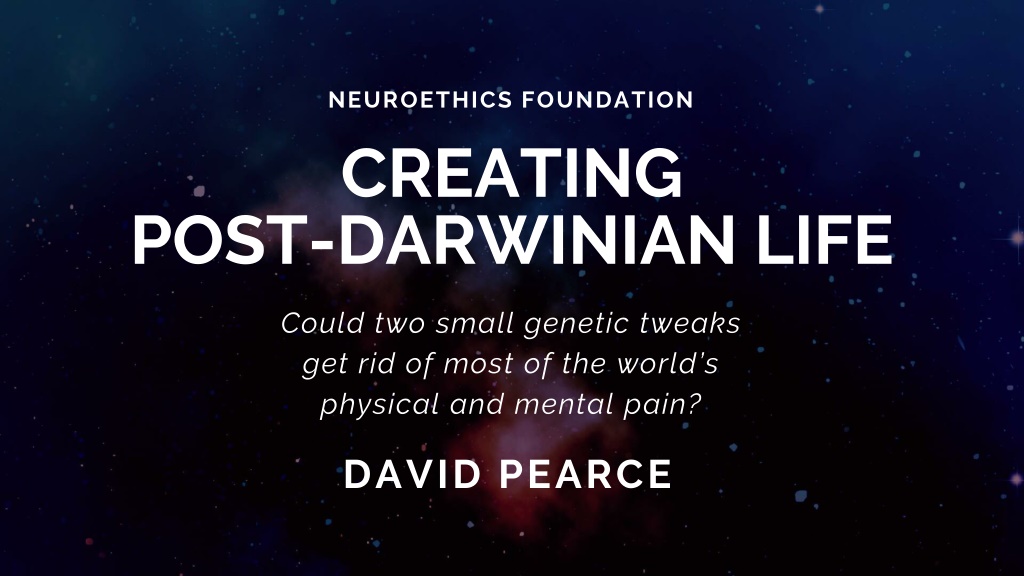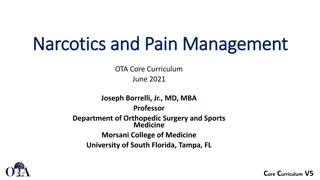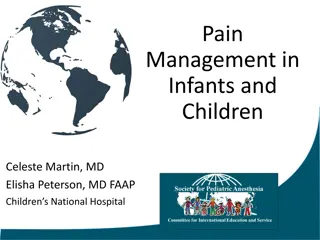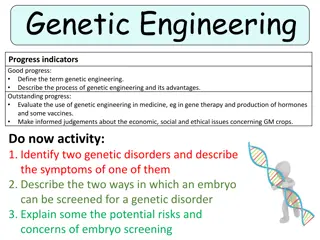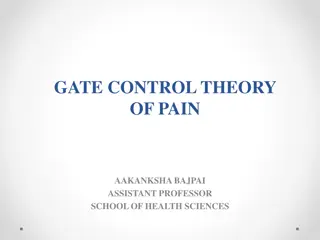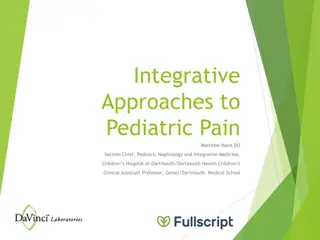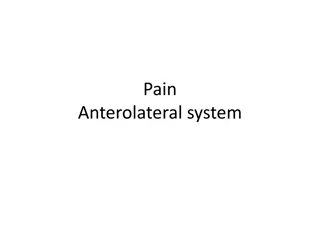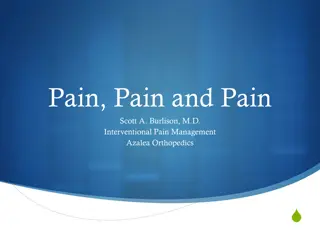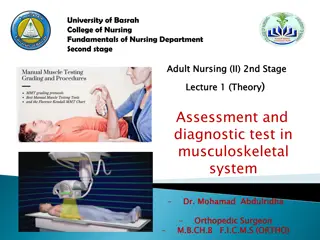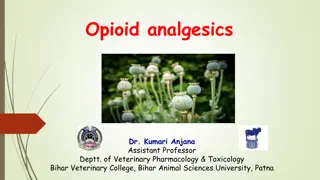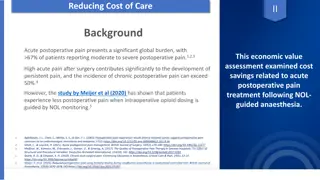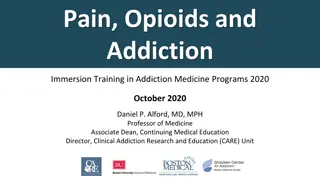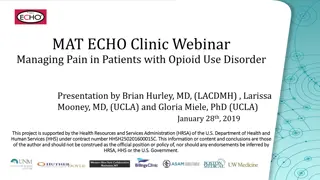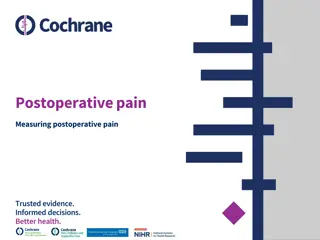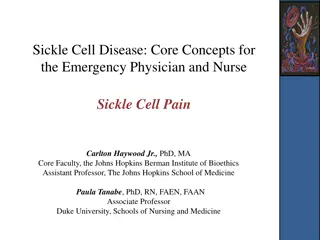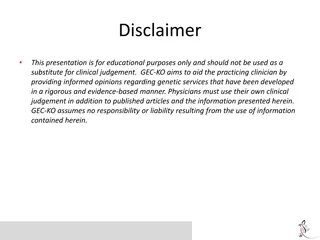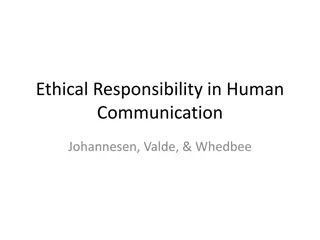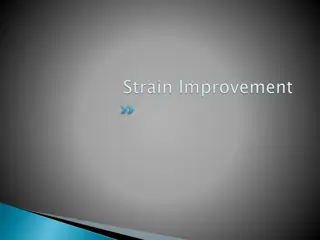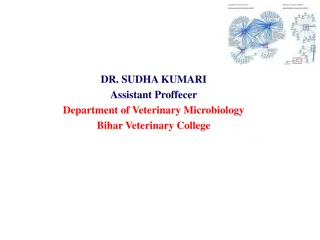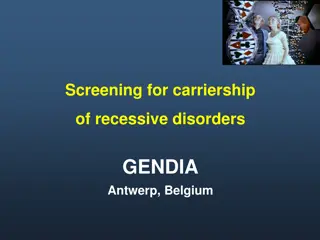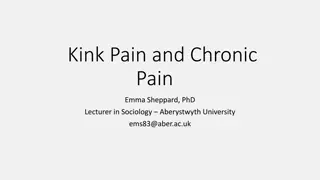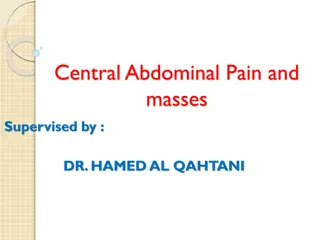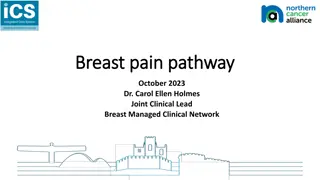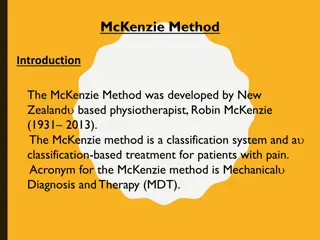Genetic Tweaks for Pain-Free Life: Ethical Considerations and Future Possibilities
Post-Darwinian life could potentially alleviate physical and mental pain through genetic tweaks, sparking debates on ethical implications, human genetic experimentation, and the use of technologies like CRISPR. The discovery of FAAH and FAAH-OUT genes offers insights into reducing pain sensation and enhancing well-being, prompting proposals for controlled clinical trials on CRISPR babies with specific mutations.
- Genetic Tweaks
- Pain-Free Life
- Ethical Considerations
- CRISPR Technology
- Human Genetic Experimentation
Download Presentation

Please find below an Image/Link to download the presentation.
The content on the website is provided AS IS for your information and personal use only. It may not be sold, licensed, or shared on other websites without obtaining consent from the author. Download presentation by click this link. If you encounter any issues during the download, it is possible that the publisher has removed the file from their server.
E N D
Presentation Transcript
NEUROETHICS FOUNDATION CREATING POST-DARWINIAN LIFE Could two small genetic tweaks get rid of most of the world s physical and mental pain? DAVID PEARCE
Human Genetic Experimentation Is it ethical to create children who will suffer a terrible genetic disease (aging), multiple intellectual handicaps, and terrible mental and physical pain?
Yes. Life is wonderful!
TIME FOR A MORATORIUM ON RECKLESS GENETIC EXPERIMENTS? Antinatalism won t solve the problem of suffering. Staying child-free - or adopting - imposes selection pressure in favour of baby-making.
He Jiankui Used CRISPR gene-editing technology to tweak the DNA of human embryos during in vitro fertilization. "This experiment is monstrous. (Julian Savulescu, Medical Ethicist, University of Oxford)
FAAH and the newly-discovered FAAH-out gene Jo Cameron 72 year old vegan Retired school teacher Experiences almost no physical or mental pain Childbirth "felt like a tickle" Chronic mild euphoria Information-sensitive gradients of well-being
Absence or underactivity of the FAAH FAAH and FAAH-OUT genes gene is associated with reduced pain- sensation. Accelerated wound-healing Rapid extinction of fearful memories Reduced anxiety Fatty acid amide hydrolase High hedonic set-point Lifelong happy mood The FAAH enzyme breaks down anandamide (Sanskrit for "joy, bliss, or happiness") Delayed aging Anandamide increases neurogenesis
PROPOSAL Large well-controlled clinical trials of CRISPR babies with FAAH and FAAH-OUT mutations.
GOAL All prospective parents should be offered genetic screening, counselling and access to CRISPR genome- editing for happy, healthy babies.
RISKS OF HUMAN GENETIC EXPERIMENTATION
TRANSHUMANISM Towards a Triple S Civilisation of Superhappiness, Superlongevity and Superintelligence abolitionist.com humanityplus.org neuroethics.com
